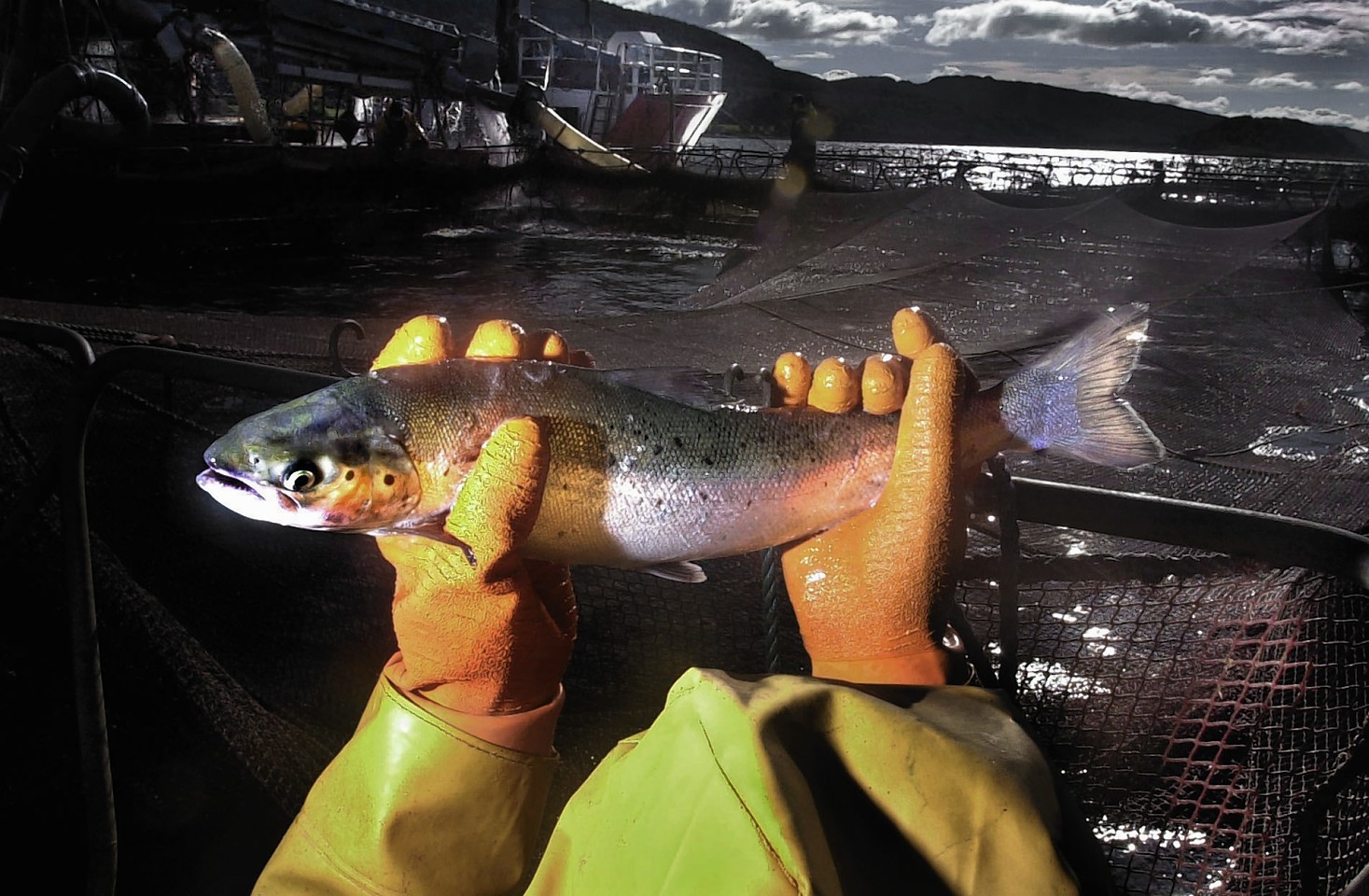A pioneering Highland aquaculture firm will later this year introduce salmon eggs with improved resistance to sea lice.
Landcatch, from Ormsary in Argyll, and its genetic team based in Stirling, have applied a technique known as genomic selection – a method of screening the DNA of individual fish – to identify those that are most resistant to lice infestation.
The company announced to the UK industry’s annual conference Aquaculture UK in Aviemore that several million selected eggs will be commercially available by December, to improve the resistance of the next generation of Atlantic salmon.
Sea lice control in farmed salmon is a major source of concern in the industry and among wild salmon fishing organisations.
The Landcatch team takes a small fin sample from each fish and uses a recently-developed chip to analyse more than 100,000 DNA markers which help scientists locate genes associated with disease and then predict the sea lice resistance of individual fish to be used in breeding.
Dr Alan Tinch, director of genetics at Landcatch, said: “We are excited to bring this advance in technology to market and to take a step forward in reducing the impact of sea lice on welfare and performance of salmon.
“Salmon breeding takes a leap forward with the successful implementation of genomic selection for sea lice resistance. We now have a high resolution digital quality image of the genetic value of each of our broodstock and predict with high accuracy which males and females are the most resistant to sea lice.”
Collaborators in the project are the universities of Glasgow, Stirling and Edinburgh, including The Roslin Institute and Edinburgh Genomics, and Affymetrix UK Ltd.
